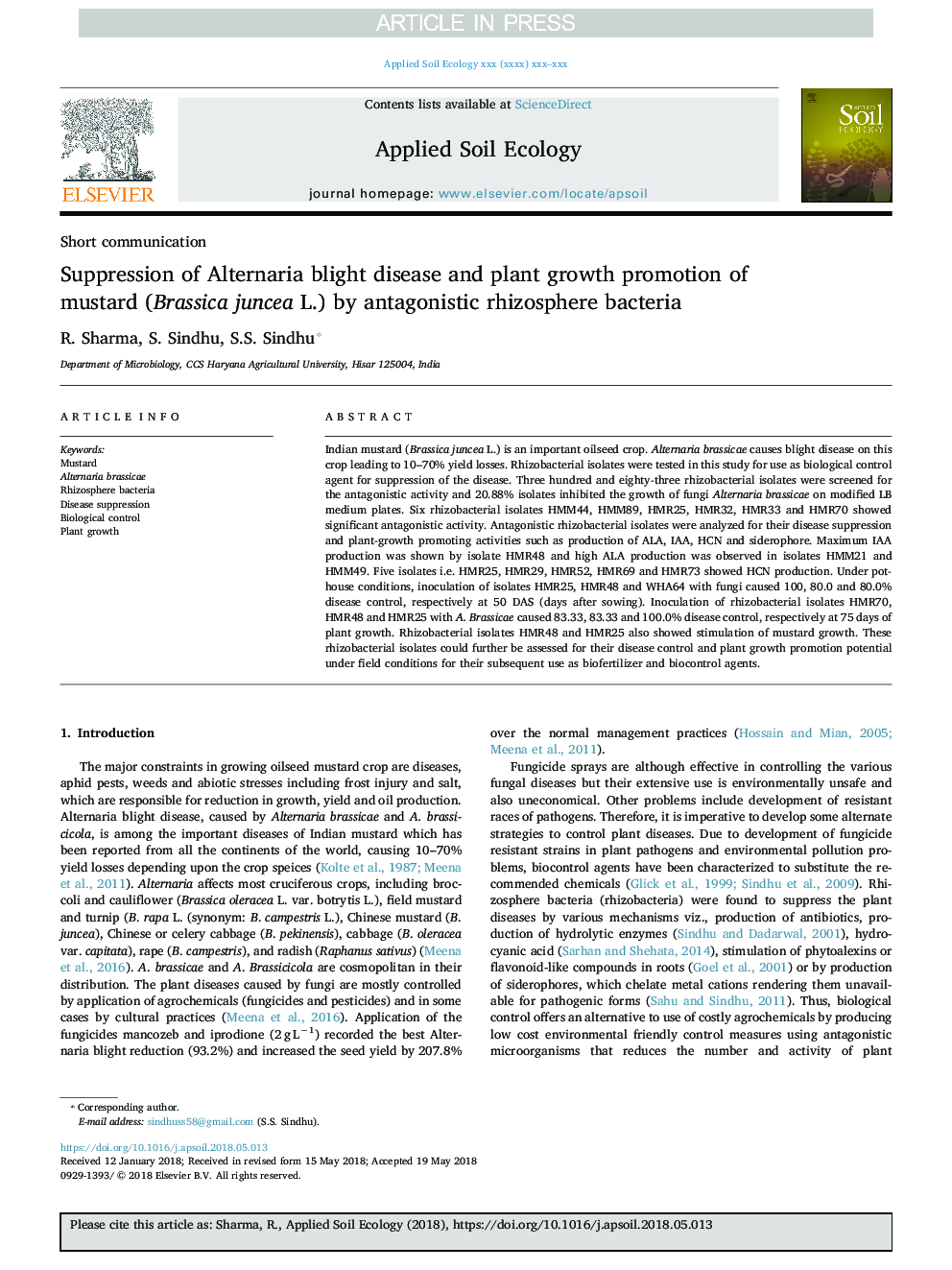| Article ID | Journal | Published Year | Pages | File Type |
|---|---|---|---|---|
| 8846626 | Applied Soil Ecology | 2018 | 6 Pages |
Abstract
Indian mustard (Brassica juncea L.) is an important oilseed crop. Alternaria brassicae causes blight disease on this crop leading to 10-70% yield losses. Rhizobacterial isolates were tested in this study for use as biological control agent for suppression of the disease. Three hundred and eighty-three rhizobacterial isolates were screened for the antagonistic activity and 20.88% isolates inhibited the growth of fungi Alternaria brassicae on modified LB medium plates. Six rhizobacterial isolates HMM44, HMM89, HMR25, HMR32, HMR33 and HMR70 showed significant antagonistic activity. Antagonistic rhizobacterial isolates were analyzed for their disease suppression and plant-growth promoting activities such as production of ALA, IAA, HCN and siderophore. Maximum IAA production was shown by isolate HMR48 and high ALA production was observed in isolates HMM21 and HMM49. Five isolates i.e. HMR25, HMR29, HMR52, HMR69 and HMR73 showed HCN production. Under pot-house conditions, inoculation of isolates HMR25, HMR48 and WHA64 with fungi caused 100, 80.0 and 80.0% disease control, respectively at 50 DAS (days after sowing). Inoculation of rhizobacterial isolates HMR70, HMR48 and HMR25 with A. Brassicae caused 83.33, 83.33 and 100.0% disease control, respectively at 75â¯days of plant growth. Rhizobacterial isolates HMR48 and HMR25 also showed stimulation of mustard growth. These rhizobacterial isolates could further be assessed for their disease control and plant growth promotion potential under field conditions for their subsequent use as biofertilizer and biocontrol agents.
Keywords
Related Topics
Life Sciences
Agricultural and Biological Sciences
Ecology, Evolution, Behavior and Systematics
Authors
R. Sharma, S. Sindhu, S.S. Sindhu,
